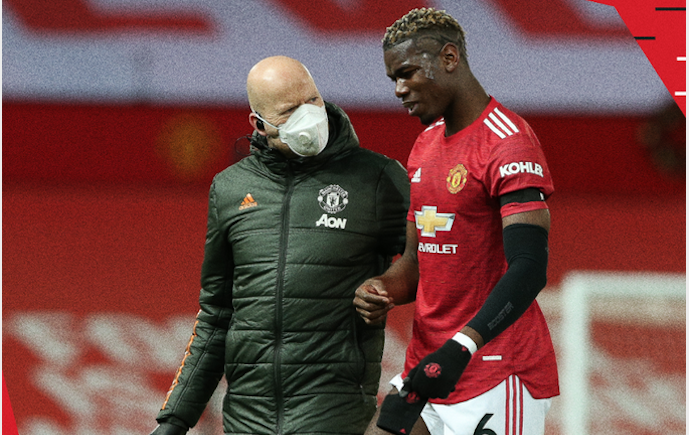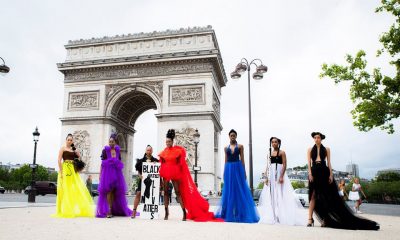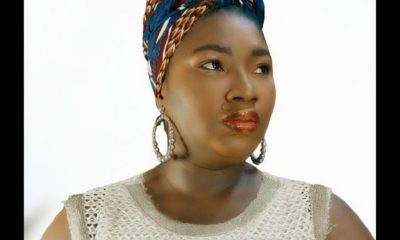EUROPE
FRANCE – What results for the summit of African economies?

The summit on the financing of African economies, held in Paris on the initiative of President Emmanuel Macron, ended on Tuesday evening, 18 May, with the main announcement of support from the international community in the health field, but without a firm financial commitment on the economic front. Recall that the objective of this summit was to launch a “New Deal” as the French president put it, in order to revive the African economies asphyxiated by the economic consequences of the Covid-19 pandemic. The ambition was to raise $100 billion to partially meet Africa’s financing need.
Moving towards 100 billion SDR to Africa
Although the continent is relatively unharmed from a health perspective, with 130,000 Covid-19 deaths, according to official figures, out of a global total of nearly 3.4 million, it is paying a very heavy economic and social toll, For lack of being able like the richest countries to launch pharaonic recovery plans. According to the IMF, a continent that needs massive investments to eradicate poverty, develop infrastructure, address climate change and the jihadist threat is short nearly $300 billion.
At the end of the summit, participants did not announce a firm commitment on this financial front, but promised to engage in discussions around the International Monetary Fund’s “Special Drawing Rights” (SDRs). Equivalent to an IMF banknote board, these monetary assets can be converted into foreign currency and spent without creating debt.
The international community has already agreed on the principle of a global SDR issue of 650 billion dollars, of which 33 billion must mechanically return to Africa, through the use of quotas within the Washington institution. “This is too little,” said the French president, who calls on rich countries to allocate a large part of their SDR to African countries, as France pledges to do, to reach a total of $100 billion.
Commenting on “a lot of technical work to be done,” Emmanuel Macron said he hoped for a “political agreement” on the SDRs either at the next G7 summit, or at the G20 summit, or between June and October.
Convince Washington and continue discussions on African debt
The main thing is to convince the United States. U.S. Treasury Secretary Janet Yellen supported a redistribution of SDRs in a press release, provided the use of funds is “transparent and accountable”.
France would also like to open the discussion on mobilizing the IMF’s gold reserves.
Another topic of discussion is the debt of African countries, which has exploded since the pandemic. If a moratorium has made it possible to give some air to the most indebted countries, the next step would be to cancel part of the debts, in a coordinated approach, under the aegis of the G20.
African leaders stressed the need to also support the African private sector, and to move away from a logic of international public assistance conditioned by harsh reforms. In particular, Macky Sall denounced the “agreed” framework of fiscal constraints imposed on African countries, which limit their investment capacity. And called to move from a logic of assistance to a dynamic of “co-construction” between the continent and the rest of the international community.
One step closer to lifting vaccine patents?
Could this co-construction become a reality in terms of health? Emmanuel Macron stressed that the participants had decided on a “very strong initiative to massively produce vaccines in Africa”, with in particular “World Bank financing”. “We support technology transfer and work that has been requested of the World Health Organization, the World Trade Organization and the Medicines Patent Pool [supported by the UN, Editor’s note] to remove all intellectual property constraints that block the production of any type of vaccine,” the French president told the press at the end of the conference. This announcement confirms international support for the lifting of patents on vaccines, which India and South Africa have called for, following the appeal by US President Joe Biden, to which Europe has followed suit, despite opposition from pharmaceutical companies.
Given the time required to launch these productions, Emmanuel Macron explained that in the short term the summit participants had agreed to “push the ambition of Covax (organisation for the distribution of vaccines to poor countries) from 20% to 40% of people vaccinated in Africa”. For the time being, with the exception of Morocco, where 13% of the population received a first injection, vaccination rates remain low on the African continent, due to insufficient supplies.
Senegalese President Macky Sall pointed out that the widespread vaccination campaigns in industrialized countries do not guarantee «absolutely no health security». He warned against the development risk in Africa of “extremely resistant variants”.
The President of the Democratic Republic of the Congo (DRC), Félix Tshisekedi, who holds the rotating presidency of the African Union, stressed to him that the issue was also to convince the people, by countering the “work to undermine social networks that have demonized vaccination.” At the end of April, his country had to give the Covax initiative 1.3 million doses of AstraZeneca vaccines because it could not administer them before their expiry date. The motive? People’s distrust of vaccines. “We received 1.6 million doses, only 10,000 people were vaccinated, and most expatriates,” he said.
Source : Le Point
EUROPE
FRANCE – A French national arrested in Niamey

Stéphane Jullien was arrested on Friday, 08 September 2023 in Niamey. This French national has lived in Niger for eighteen years. He is the advisor of the French abroad in the country.
According to RFI, his arrest occurred while he was leaving the French Embassy. The Nigerien security forces found in his vehicle several cases including uniforms in the colors of the Burkina Faso army, says the same source.
Detained at the Niamey Prison
This import-export entrepreneur is held at the Niamey Prison. According to a French diplomatic source, Mr Jullien is accused of “complicity in the attack on the security of the territory”.
His case is managed by the Directorate General of External Security, according to RFI. This structure would be attached to the Nigerien Presidency.
“Our embassy is mobilized to ensure consular protection for our compatriot”
Yesterday Tuesday, September 12, Paris demanded his «immediate release» via a statement made public by the Ministry of Foreign Affairs. «Since the first day, our embassy has been fully mobilized to ensure consular protection for our compatriot» assures the Quai d’Orsay.
EUROPE
FRANCE – The government formally bans Abaya at school

The wearing of the abaya will be banned at school in France, announced the Minister of National Education Gabriel Attal, a decision made in the name of secularism and supposed to put an end to the controversies around this traditional long dress worn by some Muslim students. «I decided that we could no longer wear abaya to school,» Gabriel Attal told TF1 on Sunday, August 28, 2023.
The minister, who had since he took office this summer, wished firmness on questions of secularism, had judged that going to school in abaya was «a religious gesture, aiming to test the resistance of the Republic on the secular sanctuary that the School must constitute», promising firmness about it. «You enter a classroom, you must not be able to identify the religion of the students by watching them», he explained Sunday on TF1. The question of this traditional garment is sensitive, the French Council of Muslim Worship (CFCM) believes that the abaya, a long dress covering the female body, is not a Muslim religious sign. Its port is «more ambivalent than a veil» according to Haoues Seniguer, lecturer at the IEP of Lyon and specialist in Islamism.
In France, according to the law of 15 March 2004, «in public schools, colleges and high schools, the wearing of signs or dress by which students ostensibly manifest a religious affiliation is prohibited», a circular specifying these signs «the Islamic veil (..) the kippa or a cross of manifestly excessive dimension». The National Education had already seized the abaya in November, in a circular that considered this garment – like bandanas and long skirts, also cited – as outfits that can be prohibited if they are «worn so as to manifest ostensibly a religious affiliation».
The predecessor of Gabriel Attal, Pap Ndiaye, questioned by the unions of heads of establishment on the increase of the incidents related to these outfits, had however refused to «publish endless catalogues to specify the lengths of dresses».
increased attacks on secularism.
According to a note from the state services, of which AFP has obtained a copy, the attacks on secularism, much more numerous since the assassination in 2020 around his college of Professor Samuel Paty, increased by 120% between the academic year 2021/2022 and 2022/2023. The wearing of signs and clothing, which represents the majority of attacks, increased by more than 150% throughout the last school year.
The minister wanted to pay tribute on Sunday to the heads of schools “who are on the front line on these questions of secularism”, and promised to meet “as early as next week (…) to give them all the keys so that they can enforce this rule”. Bruno Bobkiewicz, Secretary General of the National Union of Management Personnel of the National Education Authority, responded to AFP, “The instruction was not clear now and we welcome it.” “Now that the message is out, it has to be implemented in the institutions (…) the heads of schools must not be alone against the abayas,” he added.
On the opposition side, the decision was applauded on the right, with Eric Ciotti (LR) leading on X (formerly Twitter): «We had repeatedly called for the ban of abayas in our schools. I welcome the decision of the Minister of National Education, who agrees with us.” On the left, however, Clémentine Autain (LFI) was outraged by the «clothing police», judging «unconstitutional» the announcement of Gabriel Attal, «contrary to the founding principles of secularism. Symptomatic of the obsessive rejection of Muslims.
EUROPE
FRANCE – Juan Branco after the release of Ismaëla Madior Fall: “He lies about the penal code of his own country”

The exit of the Senegalese Minister of Justice, Keeper of the Seals, Ismaëla Madior Fall announcing that the conviction of Ousmane Sonko in the case of morals which opposed him to Adji Sarr, surprised more than one. The French lawyer of Pastef’s leader, Juan Branco, was quick to react. On his account X (ex-Twitter), he retorts that the minister “lies about the penal code of his own country”, in a post he titled: “Plunged into the logic of an authoritarian power”
“In an interview with Jeune Afrique, this Thursday, August 31, 2023, the Senegalese Minister of Justice lies about the penal code of his own country,” the lawyer wrote.
Who seems to be surprised by this release of the minister. It is particularly revealing to see a Keeper of the Seals pronounce on an individual case in a foreign media, and even more, to see him lie about it in a shameless way”.
Before attacking the press that published the interview. It is also significant to see which medium is used for this purpose, in this case, a «press» organ that has long survived only thanks to the sale of advertorials in honor of the potentates of françafrique”.
According to the lawyer, Mr. SONKO is the main opponent of the Senegalese government, “whose president is a close ally of Emmanuel Macron”. Juan Branco: “Mr. SONKO, immensely popular, is an icon of the fight against corruption and françafrique, and threatens powerful interests. This led him to unfair proceedings, including rape charges for which he was acquitted, and to be sentenced in his absence to two years in prison for an offence for which he was not charged. This sentence, which is supposed to make him ineligible if it becomes final, was handed down on 1 June”.He also accused the government of wanting to make his client ineligible. Power has long sought to render ineligible, Mr. SONKO. Thus, a first defamation case was heard manu militari for this purpose, without success at this stage. This is how this new case tries to be used as a pretext to remove him from the electoral lists and thus prevent him from running in the elections of February 2024,” he said.
“In the meantime, he added, Mr. SONKO was arrested and detained for other reasons. The case is guignolesque: the Prosecutor initially justified his arrest by invoking a theft of mobile phone (sic), before, once the man placed in custody, to charge him with crimes of violation of state security, call for insurrection, terrorism, etc. It must be strange, for a presidential favourite, to pass in a few hours from a thief to a terrorist. Mr. SONKO, sent to pre-trial detention, immediately went on hunger strike and is currently in intensive care.” He believes that the Senegalese authorities are trying to save face.” Those authorities who have detained between 1,600 and 1,800 political prisoners, including lawyers, journalists, elected officials and activists, and who are piling them up in inhumane conditions, have since faced intense international pressure, and therefore try to save face”.
He recalled that: “Senegal has long been considered the pearl of law, an example in Africa. It is therefore very important to maintain appearances”.
According to him, “this is the meaning of this meeting of the Minister of Justice, sent to the front to convince the international opinion that everything is normal”.
Let’s deconstruct it patiently.
“The Senegalese law provides that when you have been tried in your absence, your arrest or constitution as a prisoner immediately annihilates the sentence in absentia of which you were the subject, so that a new trial is organized in accordance with your rights”says Branco.
Who adds: “It is a real rock in the shoe of power, because if they had to restart new procedures, they could not lead to a definitive condemnation before the elections of February 2024, and therefore prevent Mr. SONKO from being a candidate”.
-

 CULTURE2 years .
CULTURE2 years .CULTURE-BOOK – Léa Djadja offers tips and tricks in “Learning to love yourself in 365 days”
-

 EAST AFRICA1 year .
EAST AFRICA1 year .TANZANIA – President meets with Chairman of the Board and CEO of the Merck Foundation
-

 A LA UNE3 years .
A LA UNE3 years .GUINÉE: Manchester United: Paul Pogba absent several weeks
-

 CULTURE4 years .
CULTURE4 years .BLACK ARTIST LIVES MATTER: Designer Murielle Kabile scrolls for black entrepreneurs on the Champs Élysées
-

 ZETVPLAY4 years .
ZETVPLAY4 years .WHAT IS AFRICA FOR YOU: Diaka Camara, CEO CBCworldwide talks about Africa
-

 FOR YOU WHAT IS AFRICA3 years .
FOR YOU WHAT IS AFRICA3 years .WHAT AFRICA MEANS TO YOU: Sandra BELLO CEO Bello Corporation talks about Africa
-

 CULTURE3 years .
CULTURE3 years .SENEGAL – “Sadik Lady” by Viviane Chidid
-

 SOCIETY3 years .
SOCIETY3 years .[ ASSA TRAORÉ’S REACTION ] – Adama Traoré’s brother Bagui Traoré is released



